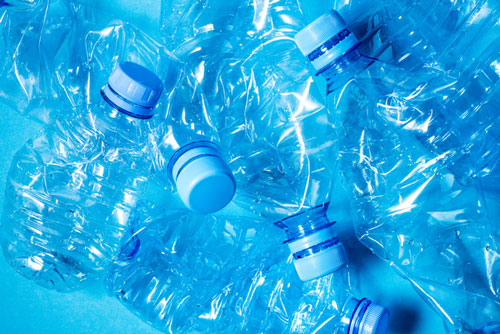By now, most health-conscious people know to stay away from BPA.
It’s a chemical in some plastics linked to hormone problems, cancer, heart disease, diabetes, infertility, and migraines.
BPA (bisphenol A) was once in a wide range of products…the lining of food cans, water bottles, food storage containers, and many other items.
But there was such strong evidence of BPA’s dangers that manufacturers started to phase out the chemical. This gave them a marketing opportunity. They started touting their products as “BPA-free.”
Maybe you’re thinking this story has a happy ending.
It doesn’t.
That’s because when plastics companies got rid of BPA, they substituted something that appears to be just as bad.
The two substances that are mainly used to replace BPA are BPS (bisphenol S) and BPF (bisphenol F). They are chemically similar to BPA.
A new study published in the Journal of the Endocrine Society found that BPS and BPF are linked to obesity and belly fat. It tested for the chemicals in the urine of more than 1,800 subjects.[1]
It found that the odds of obesity rose 16% for every “unit increase” of BPS in subjects’ urine. BPF was linked with a 29% higher chance of belly fat.
A 2015 study concluded that BPS and BPF “are as hormonally active as BPA, and have endocrine-disrupting effects.”[2]
7 Ways to Stop Plastics Chemicals from Damaging Your Health
Here are a few basic rules to keep BPA, BPF, and BPS out of your body…[3]
- Don’t handle cash register receipts. When possible, have stores send you receipts by email instead.
- Don’t use plastic water bottles. Go for stainless steel reusable bottles and glass food containers.
- Never microwave food or drinks in plastic containers. This can cause chemicals to leach out. It happens even with “microwave safe” containers.
- Don’t cover food in the microwave with plastic wrap. Use a paper towel instead to stop spattering.
- Don’t put plastic items in the dishwasher. The heat can cause them to break down.
- Don’t use old or scratched plastic food containers. Bits of plastic can break off into food or drinks.
- Don’t buy canned foods. The insides of the cans are coated with a thin plastic layer that contains BPF and BPS.
Editor’s Note: If you’re concerned about exposure to the toxic chemicals that are all around us, you need the Toxin Flush Protocol. It’s a detailed plan to help remove toxins from your system. You can get it in Independent Healing, your best source for evidence-based health advice. Go HERE to subscribe.
Related Articles
7 Things You Should Throw Away Immediately
Every Time You Go Into a Store, You Walk Out With Toxic Waste
BPA-Free Plastic is not a Safe Alternative, say
Researchers
[1]https://academic.oup.com/jes/advance-article/doi/10.1210/js.2019-00201/5537531
[2]https://ehp.niehs.nih.gov/doi/10.1289/ehp.1408989
[3]https://www.smallfootprintfamily.com/avoiding-toxins-in-plastic

